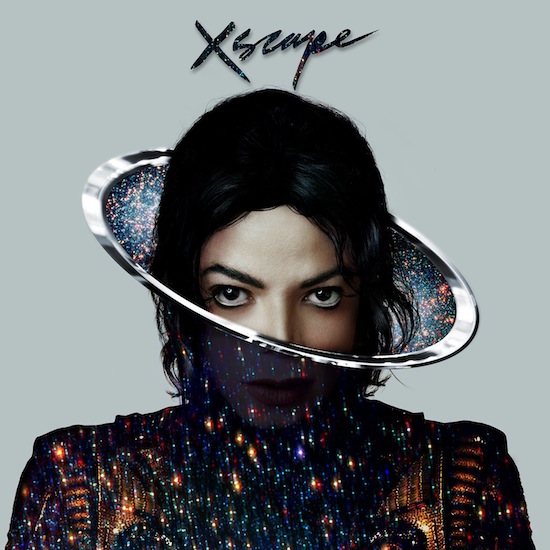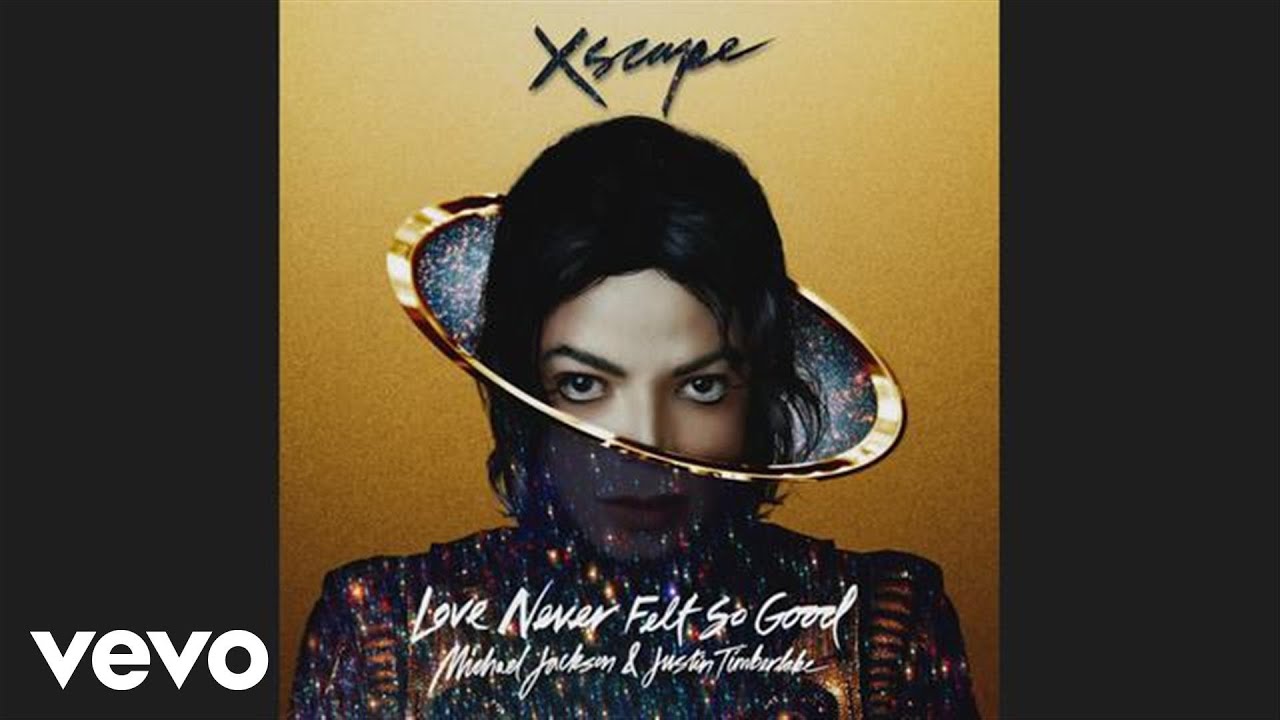If you’re an uber-fan of Michael Jackson, walk away from this article right away. Why? Because there’s no talking sense to you lot. You’ve all reached levels of devotion so lofty that, if you were a Catholic, you’d be faking stigmata by now and absolutely believing that statues could cry milk.
If you’re a level-headed fan of MJ, step this way because, for the first time in ages, there’s something to be excited about.
Jackson’s newest posthumous cut – Xscape – was being touted around and it looked for all the world like grave robbery. Of course, no-one likes to see a legend’s legacy getting roughly manhandled. Since Michael’s death, there have been a number of inferior products, such as the sub par ‘Michael’ and the completely superfluous ‘Wanna Be Startin’ Somethin’ 2008′, which had a rap from Akon. Akon!
Even before he died, Jackson released his fair share of dreck. Pretty much everything post-Dangerous was hit-and-miss, seeing Jackson reacting to pop culture, rather than charging ahead and defining it. ‘Billie Jean’ was future-funk on an album that had an embarrassment of riches and ‘Man In The Mirror’ did the impossible – made a soppy charitable record with a key change absolutely vital, rather than making you hate all causes.
Jackson, from the J5 through some sweet early solo 45s, through to the Off The Wall LP which has so many good basslines that it isn’t fair, through at least half of The Jacksons’ output, right up to Dangerous, had moments where he could walk on water. He was tough, yet sensitive… a genius with the weight of the world on his shoulders and an ego to think he was its guardian.
Michael was the perfect pop-star… until he started to control his own music.
See, as wonderful as Michael Jackson is, he was always much better in true collaboration. Be it with his brothers, with Quincy Jones or whatever, MJ was talented and hungry enough to push collaborators further than they’d previously been. In turn, Jackson was clearly glad of musical equals. When the two collided, the whole was quite obviously better than the sum of its already considerable parts.
However, some court cases, money issues, botched operations and Those Claims, and Jackson retreated into Neverland and the public didn’t see the real him again, rather, a Tim Burton version of a fairy tale, with the protagonist seeing himself as Peter Pan, when the rest of the world saw Dorian Gray.
Jackson got more control over his own music and, hardcore devotees aside, no-one could muster up the energy to care, aside from pitying looks, bad jokes about his body dismorphia and remembering when he was so vital. Everything became weary. The moves were gone, his shots at the dancefloor sounded fogeyish and he leaned increasingly on ballads. Did anyone really care about ‘Cry’ or ‘Hold My Hand’ at the time? Can you even remember them?
His remixes sounded out-of-step and his futuristic funk machine started to rattle, with the punch smoothed over with so much sheen and gloss, even his music started sounding a bit seedy.
"Michael Jackson didn’t trust anyone with his music," A&R executive Aaron Reid told Page Six. "He stopped finishing songs. He had a whole bunch of material stored away.’
The new LP features ‘Slave to the Rhythm’, which Jackson recorded in 1989, just at the beginning of his output’s decline. LA Reid told Billboard: "He sang the song from top to bottom 24 times without a bathroom break, without a water break, without a ‘Give me a moment.’ He would sing the song and say, ‘OK, give me another track, I can do it better,’ and he’d do it again. ‘I can nail this. Give me another track,’ and he’d do it again. Each time he’s getting better and better, but by the time you got to track 13, 14 we got lost, because it all started to sound the same. At that point he’d perfected it, but he just kept going."
It was this quest for perfection, and the subsequent ‘getting lost’ that ruined Jackson more than any other problem. He wandered past the moment. He was slowly getting out of the groove. When talking about the songs he’d perform for the rest of his life, he said: "’Heal The World’, ‘Speechless’, ‘You Are My Life’… because, the point is that they’re very melodic and if they have a great important message that’s kind of immortal, that can relate to any time and space."
If only he’d realised that the groove of ‘Baby Be Mine’ or the simple joys of ‘Rock With You’ were the truly timeless things that made everyone tick. He went from dancefloor innovator and slow jam maestro to something that resembled a dark parallel universe where Celine Dion had been asked to make a soundtrack for Mad MaxM (‘Earth Song’ anyone?).
When Jackson died, fans reflected on his great work with Off The Wall, Thriller and Bad getting well-deserved reappraisals and… well… no-one really wanted to talk about the records that followed because no-one wants to speak ill of the dead. Songs too fussy. Ideas too large to be expertly executed.
When the circus of Jackson’s death settled down, news came through that some of his offcuts were going to be rejigged and jacked-up. Those that heard the news held their breath – was some producer with expensive keyboards, gated reverb and a receding hairline and ponytail going to try and make it sound ‘young’?
That was the case with Michael, but now, faced with Xscape, the music was going to be curated by Timbaland, J-Roc, LA Reid, Questlove, D’Angelo and more. Things were looking up. Incredibly talented musicians with their ear to the ground, each different in their own way, but importantly, big fans of the King Of Pop.
Naturally, the end product could be infuriatingly awful, but one thing in favour of the album is that Michael Jackson isn’t on hand to coat everything in sugar and salt. Jackson’s famous tinkering and quest for perfection, while admirable, will be absent, leaving the producers to revel in the groove of a song, rather than trying to make every song The Sistine Chapel.
While Jackson came as close to anyone, it is fair to say that in his stride, making effective, lavish pop records is when we all loved him best.
Now, there’s a couple of Xscape cuts knocking around online – notably Timbaland-produced ‘Chicago’ and Justin Timberlake duet ‘Love Never Felt So Good’, it has never been clearer that Michael Jackson is at his best when he’s not got a despotic rule over the end product.
The latter is particularly interesting if you think of the rumour that JT’s ‘Justified’ was, for the most part, written for Michael Jackson, which he turned down. For years, sections of the dancefloor have wondered how good Jackson and The Neptunes could’ve been together. And, in some ways, ‘Love Never Felt So Good’ gives us a glimpse and, importantly, it is really fun. It’s a summer disco jam which won’t uproot any trees, but for the first time in years, sees a Michael Jackson record that sounds breezy, throwaway and good time – no heavy motifs and leper healing.
In ‘Chicago’, we see snarly Michael, getting righteous on a big squelchy synth bassline, with trap flourishes, angry that the triflin’ woman he’s chatting up is already spoken for. It’s Street Jackson, acting like an adult.
If these songs represent the rest of Xscape, then we’re in for a real treat. For too long, Michael Jackson was wheeled around like an out-patient, convinced he was the lead cartoon in a Disney film. However, despite the fact he was so removed from society for such a long time, Jackson had a curious ability to become part of the backstreets like the rest of us. He’d lambast his enemies, indulge in pillow talk, show occasional contemplations to a bigger picture through introspection and, vitally, always remember the beat.
The songs chosen for Xscape saw LA Reid taking something of a gamble. He could’ve dialled in a bunch of remixes and taken the paycheque, knowing Jackson’s fans would hoover up the product regardless. Reid charged his producers and musicians to create new songs based on nothing more than Jackson’s vocal tracks. Timbaland – the project’s executive producer and a modern day Quincy Jones if ever there was one – oversaw five tracks and saw them like a ghost story, with Billboard noting that he felt like "Jackson’s disembodied voice urging him on, dissuading him from sounds that weren’t innovative enough, and giving his blessing when they were."
The energy-filled Jackson has been missing for too long and now, with him gone, we might just have the most Michael Jackson sounding album since the 80s and 90s – smiling, bold, emotional, sexy, skewed and catchy.
LA Reid’s approach is a sensible one too. He said: "I wanted Michael’s voice pure and raw, not cut into bits and pieces… I wanted to be really respectful of Michael’s legacy. Going into it, I had to get my arms around not being able to measure up to Thriller or Off The Wall. No matter how good we make this music, Michael’s not here."
His absence may be the greatest blessing.
It’s a real shame he won’t be here to see it and tour it, but by God, it’d be great to have him back and, oddly, in better shape than ever.




